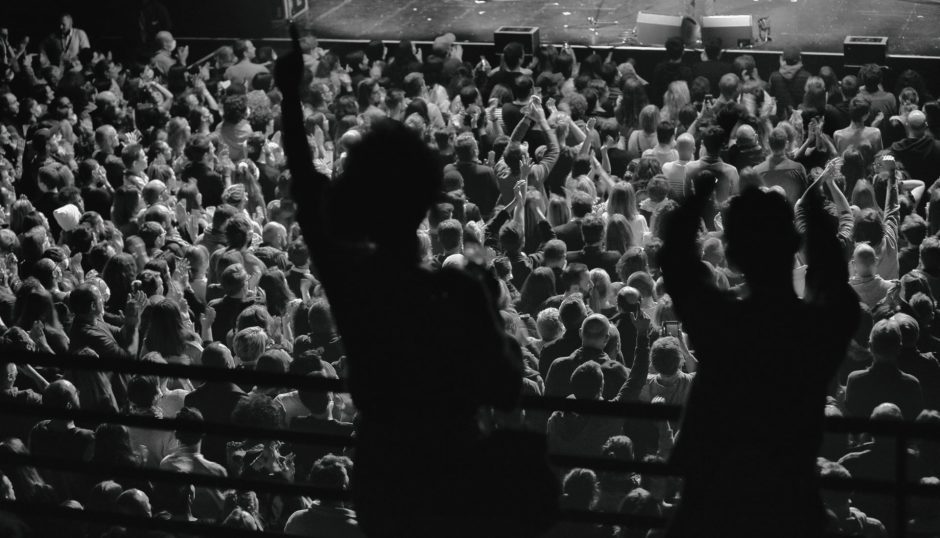Co-ops in the live performance sector were hard hit by the pandemic. French co-op Ulysse Maison d’Artistes saw an 80% drop in activity, with 400 cancelled concerts. We speak to employee members and co-founders for an update…
When was your co-op created?
The co-operative society of collective interest (SCIC) Ulysse Maison d’Artistes originated 15 years ago, with a team of enthusiasts whose idea was to contribute to the encounter between artists and the public in Aveyron and Lot [departments in the Occitanie region of France] and to promote artistic projects at national level.
From 2007 to 2012, the project grew, becoming more professional and structured, and a SARL [limited liability company], Ulysse Production, was created in October 2012.
The company’s employees, accompanied by a team of very involved volunteers, decided to follow this up with the association La Chambre de Télémaque. Its focus is on bringing to life the Krill (a cultural café at the Théâtre de la Baleine in Onet-le-Château), the Chapelle (performance hall with 90 seats in Figeax) and organising shows and outdoor cultural activities.
From 2012 to 2016, these two structures coexisted. Ulysse Productions worked in music while La Chambre de Télémaque participated in local cultural life. In 2016, they came together within the same entity, the SCIC Ulysse Maison d’Artistes. It was an incredible journey made possible by the total involvement of its people.
The SCIC is today the tool of a solid collective action at the service of artists, the public and territories. It exists through a team of enthusiasts who provide residents with the keys to emancipation and pleasure through culture.

Five of us form an employee-member steering committee and the co-management assumes the strategic and operational orientation – while relying on the advisory network of our members.
The manager position is occupied in turn by the various member employees. Our role in the co-operative is more defined by our job and what we do there than by our social or legal mandate.
Why did you choose the co-op model?
This was the most suitable form for our project. We had already been working for several years on an equivalent model through co-operative and democratic functioning among employees and by integrating the beneficiaries of the project from the start (artists, technicians, partners) even before the change in structure to a co-operative.
Our values include a relationship with the economy that does not consider money as an end but as a fuel necessary for the construction of the project and a model of democratic governance.
Ulysse Maison d’Artistes has been structured in the search for a permanent balance between individual interests and the collective interest.
What advantages and disadvantages does the model bring?
The model is co-operative and well balanced, integrating the entrepreneurial dimension of a project and bringing the values closer to associative models. This allows us to opt for a non-profit structure, with all the profits reinvested into the business to ensure the sustainability of our projects. It also means we can seat all the stakeholders around the table.
The disadvantage is that this model is still too little known to the public and requires a lot of education with our interlocutors. This model does not necessarily correspond to [the needs of] all employees because some need to evolve in a very vertical hierarchy, which is not advocated by the co-operative model.
Who are your members? What type of co-operative are you?
We have 88 members divided into seven categories – employees, artists and technicians, partners, founders, volunteers, audience and local authorities. In a SCIC, the employees occupy a central place and are surrounded by the other members.
What were the difficulties of setting up the co-op? What advice would you give to artists taking the same path?
It is a big job of administrative structuring. It is also a question of finding the right balance between living well and working well, and a good definition of the relationship between the team of employees and the rest of the members.
Our advice would be to get good support and not to believe that the legal form rules everything. The co-op is a legal framework, but it is the humans who make it up that make it live. What is important is the substance and the construction of the project.
Have you received any support/advice/funding from co-op organisations?
We were supported in the creation of the co-op by our regional union of SCOPs (worker co-ops). When we created it, the Union régionale des Scop (URSCOP) was not yet aware of all the specificities of the world of culture and had not yet developed specific services for SCICs and we sometimes found ourselves alone in the process.
Can you tell us about the events and activities you organise?
Ulysse develops, researches, and endeavours to produce and to represent its artists. It acts as a manager, a producer and a tourer, but always with the same fierce desire to create a unique link between the public and the artists. In 15 years, Ulysse has developed several skills and today provides various services – organising events; producing shows, tours and albums; supporting and managing artists; producing video clips and films; setting up cultural activities; and communications and PR.
How did the pandemic affect your co-op?
It was for us the feeling of an earthquake, a tsunami and a hurricane at the same time – 400 cancelled concerts and constant uncertainty. We had a loss of connection with the public, which was difficult to reweave in the context. The DNA of our project is to gather the public around our artists, which is precisely what was impossible for us in 2020-2021. We are still in troubled times.